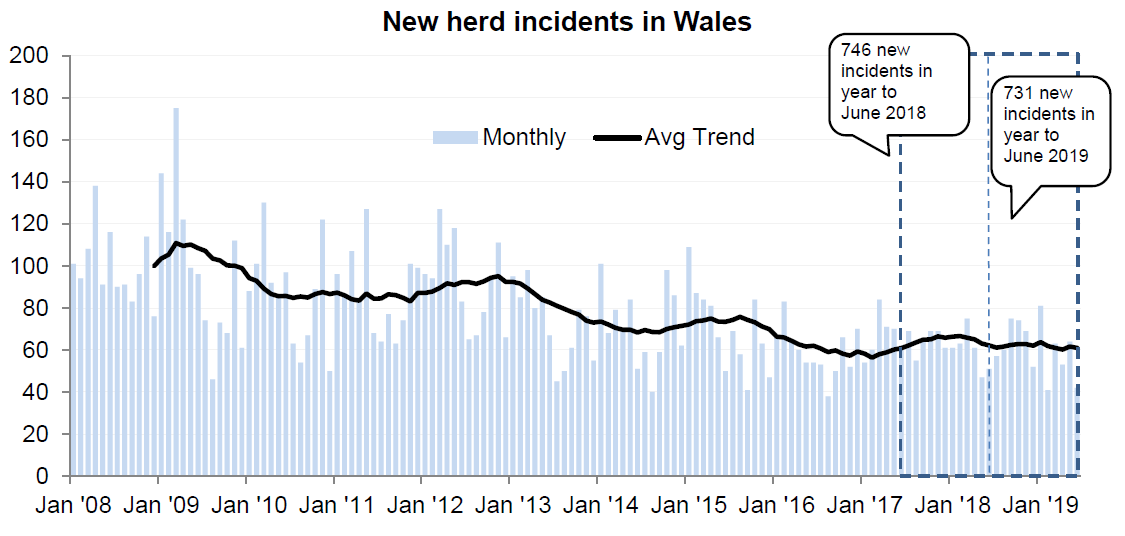Data on tests, new incidents, restricted herds and cattle slaughtered with bovine TB for for June 2019.
This is not the latest release in the series: Incidence of tuberculosis (TB) in cattle in Great Britain
The Defra Statistics release, on which this statistical headline is based, includes statistics on the basis of the Wales TB areas.
New TB herd incidents

- In the 12 months to June 2019 there were 731 new herd incidents reported in Wales.
- This is a 2% decrease on the previous 12 months, when there were 746 incidents.
- The overall trend since 2009 is broadly downwards. However the trajectory is not consistent, with periods of rising and falling trends over that period.
Animals slaughtered for TB control

In the 12 months to June 2019, 12,360 cattle were slaughtered due to bovine TB control. This is a 23% increase on the previous 12 months, when 10,024 cattle were slaughtered.
The overall trend is variable. Much of the rise since 2014 is attributable to increased use of high-sensitivity testing. For example, gamma-testing, removal of Inconclusive Reactors (IRs) and severe interpretation of the skin test have all been used with the intention of clearing up infection and reducing the risk of the disease spreading and breakdowns recurring.
As the chart shows, the monthly series is extremely variable and peaks can be expected from time to time. The numbers in recent months have been lower than the peak in October 2018 but higher when compared to the previous year.
The winter months are traditionally a busy testing period, as the animals are housed. The recent increase is likely to be due to increased gamma testing and application of severe interpretation of the skin test and removal of all inconclusive reactors in all action plan herds. Action plan herds are those that have been under restriction for 18 months or longer. They tend to be larger, which would result in a greater number of reactors. The measures are used with the intention of clearing up infection and reducing the risk of the disease spreading and breakdowns recurring. It remains to be seen whether this is a spike or a sustained increase for a longer period.
Contact
Matthew Curds
Email: stats.agric@gov.wales
Rydym yn croesawu galwadau a gohebiaeth yn Gymraeg / We welcome calls and correspondence in Welsh.
